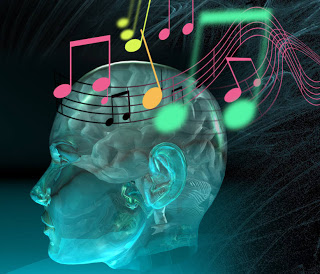Learn English

- 3 Great Iphone Apps To Learn English Through Music
While most people go to school to take several semesters of formal education in order to become fluent in a foreign language, Shakira, the famous 35-year-old singer from Colombia, learned how to speak English in a much unconventional way: through music....
- How To Learn English From Scratch? - Music
A proven way to start learning English is the use of English Music (though it can be used in more advanced levels as well). Please consider translating this post into your native language with this ?Google translator?, just in case...
- Why Learn English Through Songs And Music?
Why Learn English Through Songs and Music?So what is it about songs that make them such effective English language learning tools?1. It works. There is considerable scientific evidence that demonstrates how...
- Learn English With Songs - A Good Idea?
Hi I am AJ Hoge, the director of Effortless English. It?s time for today?s student question. Here is the question: Should I use songs to learn English? This is a very common question. So many student ask met his: AJ, should i use songs, should i listen...
- The Top Listening Activities On The Esl Commando Website
These are the top recent listening activities for the ESL Commando listening website. Enjoy! Movie Trailer Listening - Thor 2Movie Trailer Listening - Hunger GamesMovie Trailer Listening - Catching FireMovie Trailer Listening - WolverineMovie Trailer...
Learn English
New Music ?Rewarding for the Brain?

Written by Yuniar Rahmadini -
After used MRI scan, the researcher from a Canadian team of scientists found that areas in the reward centre became active when people heard a song for the first time.
The more the listener enjoyed what they heard, the stronger connection was in the area of the brain called the nucleus accumbens.
The study is published in the journal science.
Dr. Valorie Salimpoor, from the Rotman Research Institute, in Toronto, told the BBC?s Science in Action programme: ?We know that the nucleus accumbens is involved with reward.
?But music is abstract: It?s not like you are really hungry and you are about to get a piece of food and you are really excited about it because you are going to eat it ? or the same thing applies to sex or memory ? that?s when you would normally see activity in the nucleus accumbens.
?But what?s cool is that you?re anticipating and getting excited over something entirely abstract ? and that?s the next sound that is coming up.
New Tunes
To bring off the study, which took place at the Montreal Neurological Institure at McGill University, new music was played to 19 volunteers 60 excerpts by the scientist, based on their musical preferences.
As they were listening to the 30-seconds-long tracks, they had to the opportunity to buy the ones they liked in the mocked up online music store.
All of this was brought off while the participants were lying in an MRI machine.
By analyzing the scans, the scientists found that the nucleus accumbens was ?lighting up? and depending on the level of activity, the researchers could predict whether the participant was likely to buy a song.
Dr. Salimpoor said, ?As they are listening to ths music, we can look at their brain activity and figure out how they are appreciating or enjoying this music before they even tell us anything.
?And that?s part of this new direction that neuroscience is going in ? trying to understand what people are thinking, and inferring their thoughts and motivations and eventually their behavior through their brain activity.
The researcher found that the nucleus accumbens was also interacted with another area of the brain called the auditory cortical stores.
This is an area that stores sound information based on music that people have been exposed before.
?This part of the brain will be unique for each individual, because we?ve all heard different music in the past,? explained Dr. Salimpoor.
The researchers now want to find out how this drives our music tastes, and whether our brain activity can explain why people are have different styles of music.
- 3 Great Iphone Apps To Learn English Through Music
While most people go to school to take several semesters of formal education in order to become fluent in a foreign language, Shakira, the famous 35-year-old singer from Colombia, learned how to speak English in a much unconventional way: through music....
- How To Learn English From Scratch? - Music
A proven way to start learning English is the use of English Music (though it can be used in more advanced levels as well). Please consider translating this post into your native language with this ?Google translator?, just in case...
- Why Learn English Through Songs And Music?
Why Learn English Through Songs and Music?So what is it about songs that make them such effective English language learning tools?1. It works. There is considerable scientific evidence that demonstrates how...
- Learn English With Songs - A Good Idea?
Hi I am AJ Hoge, the director of Effortless English. It?s time for today?s student question. Here is the question: Should I use songs to learn English? This is a very common question. So many student ask met his: AJ, should i use songs, should i listen...
- The Top Listening Activities On The Esl Commando Website
These are the top recent listening activities for the ESL Commando listening website. Enjoy! Movie Trailer Listening - Thor 2Movie Trailer Listening - Hunger GamesMovie Trailer Listening - Catching FireMovie Trailer Listening - WolverineMovie Trailer...
